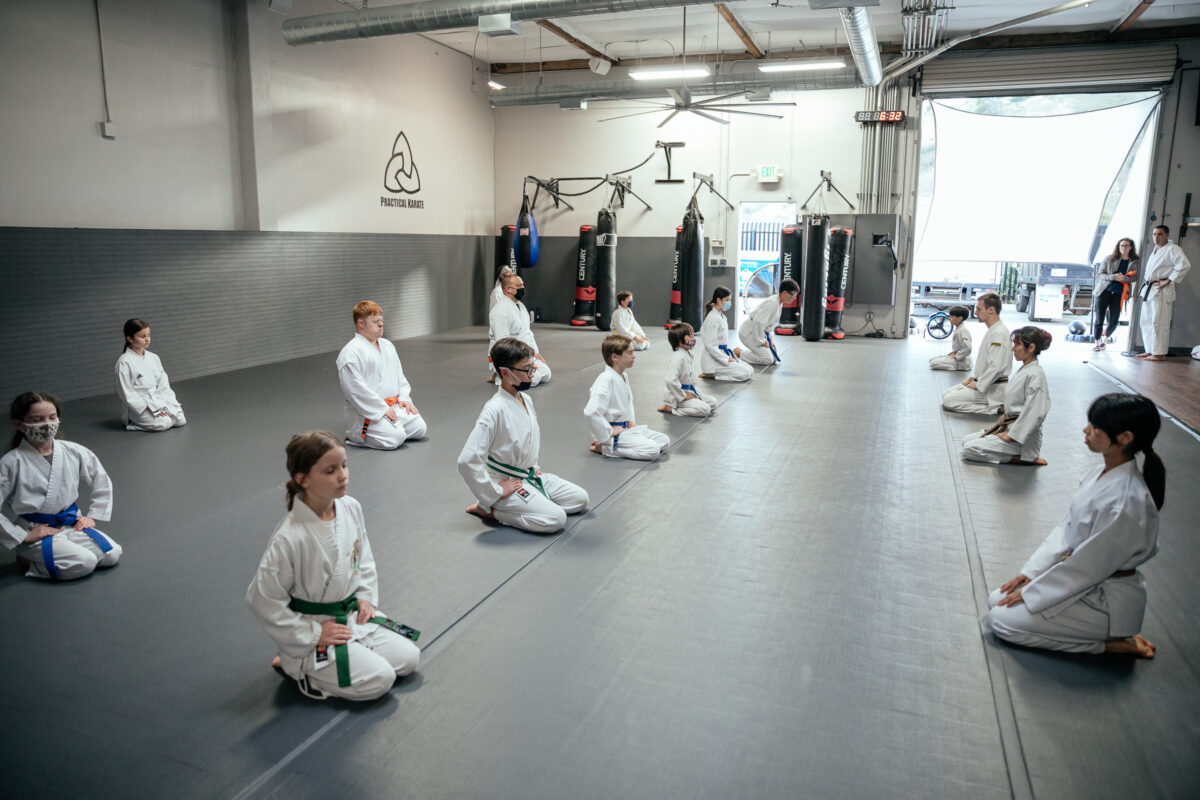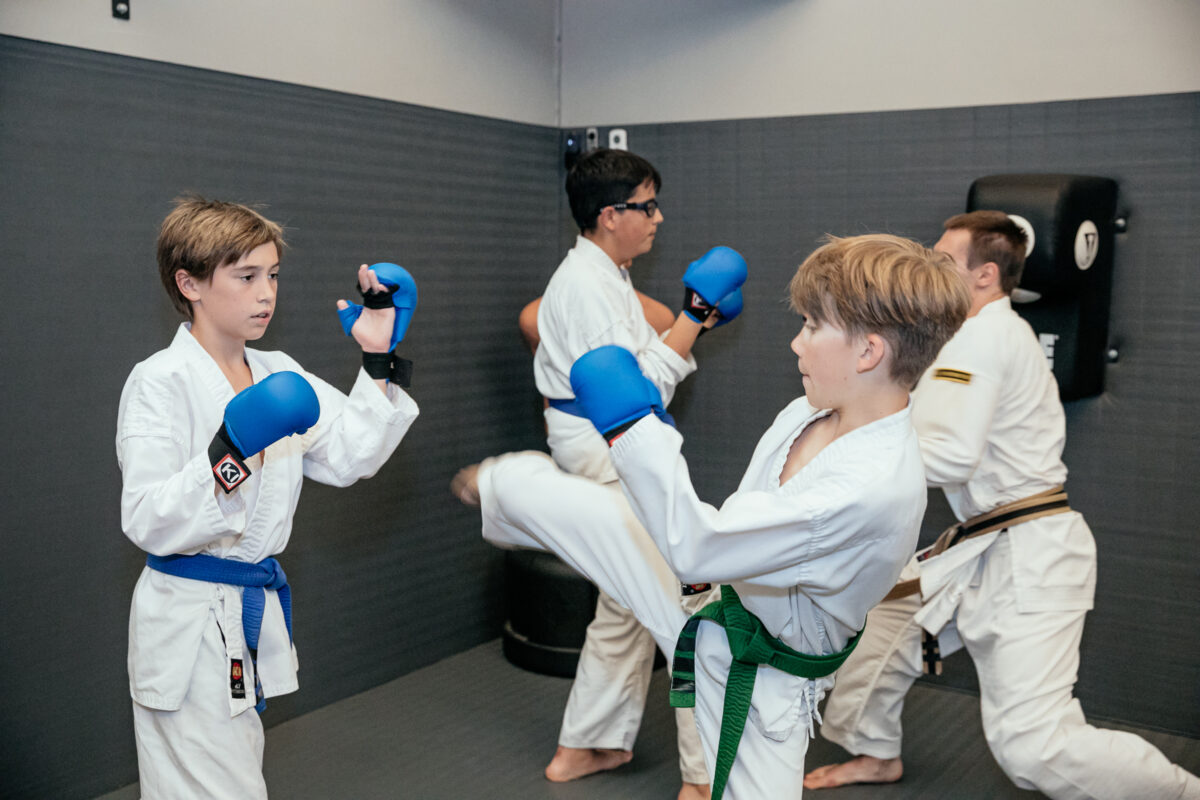karate san diego
Kids Martial Arts Classes and the Benefits of Karate Training for Kids
Karate is an ancient martial art that has been practiced for centuries, emphasizing discipline, self-defense, and personal growth. For children, engaging in karate training can be highly beneficial, providing a well-rounded approach to physical, mental, and emotional development. Unlike many other sports, karate focuses not only on physical strength but also on character building, making it a valuable activity for young learners.
Physical Benefits
1. Improved Physical Fitness
One of the most evident benefits of karate training is improved physical fitness. Karate involves a range of movements, such as kicks, punches, blocks, and stances, which enhance strength, flexibility, balance, and coordination. Regular practice helps children develop strong muscles, better endurance, and increased agility. This physical fitness can also translate into better performance in other sports and everyday activities.
2. Enhanced Coordination and Motor Skills
Karate requires precise movements and control, which helps children develop fine motor skills and hand-eye coordination. Young karate practitioners learn to move their bodies with precision, improving their overall motor function and spatial awareness. These skills are particularly beneficial for younger children who are still developing their motor abilities.
3. Increased Strength and Flexibility
Karate training includes stretching exercises that improve flexibility and muscle strength. As children advance in their practice, they become more agile and capable of executing complex movements with ease. This flexibility and strength also reduce the risk of injuries in everyday life and other physical activities.
4. Better Posture and Balance
Practicing karate encourages good posture and balance by requiring students to maintain proper stances and movements. This is especially helpful in an era where children spend long hours sitting in front of screens. Improved posture can prevent back problems and other postural issues later in life.

Mental and Emotional Benefits
1. Increased Self-Discipline and Focus
One of the core teachings of karate is self-discipline. Children learn to follow instructions, respect their instructors, and practice patience. The structured nature of karate classes encourages them to stay focused and committed to their training. Over time, this discipline extends to their academic performance, helping them concentrate better and manage their time efficiently.
2. Boosted Confidence and Self-Esteem
Karate training provides a sense of accomplishment as children progress through different belt levels. Mastering new techniques and earning higher ranks boosts their confidence and self-esteem. This newfound self-assurance carries over into other aspects of life, such as school, social interactions, and personal challenges.
3. Improved Emotional Resilience
Karate teaches children how to handle stress, frustration, and failure constructively. They learn that improvement comes with persistence and effort. This helps build emotional resilience, making them more capable of handling setbacks and challenges in life.
4. Enhanced Self-Control and Patience
Through regular practice, children learn the importance of self-control. They understand that karate is not about aggression but about discipline and respect. This helps them manage their emotions better and react to situations calmly rather than impulsively.
Social Benefits
1. Respect and Courtesy
Respect is a fundamental principle in karate. Children are taught to bow to their instructors and peers, listen attentively, and show courtesy at all times. This respect extends beyond the dojo (training hall) into their everyday lives, improving their interactions with parents, teachers, and friends.
2. Positive Social Interaction
Karate classes provide a supportive environment where children interact with peers, make friends, and learn teamwork. They practice in pairs or groups, fostering cooperation and mutual encouragement. This social engagement helps build strong friendships and improves their ability to work with others.
3. Anti-Bullying Benefits
Karate equips children with self-defense skills, making them more confident in handling confrontational situations. However, it also teaches them to use these skills responsibly and only in self-defense. Confident children are less likely to be bullied, and those who practice karate are taught to defuse conflicts peacefully rather than resort to violence.
Academic and Cognitive Benefits
1. Improved Concentration and Cognitive Function
Karate involves learning sequences of movements (katas), remembering techniques, and making quick decisions during sparring. This mental engagement enhances memory, problem-solving skills, and cognitive function. Children who practice karate often exhibit improved concentration and learning abilities in school.
2. Goal-Setting and Achievement
Karate follows a structured belt ranking system, where students progress by achieving new belts through hard work and testing. This teaches children the importance of setting goals, working towards them, and feeling a sense of achievement when they succeed. This skill is invaluable in academics and future careers.
3. Stress Reduction and Emotional Well-Being
Physical activity, including karate, is a great stress reliever. Children can channel their energy and emotions into their training, helping them release stress and anxiety. The disciplined breathing techniques in karate also contribute to relaxation and mindfulness, improving their emotional well-being.
Lifelong Benefits and Personal Growth
1. Encourages a Healthy Lifestyle
Children who engage in karate develop a habit of staying active and maintaining a healthy lifestyle. They understand the importance of regular exercise, which can help prevent obesity and lifestyle-related diseases in the future.
2. Instills a Strong Work Ethic
Karate instills perseverance, dedication, and a strong work ethic. The journey from a white belt to a black belt requires consistent effort, reinforcing the idea that hard work pays off. This mindset is beneficial in all aspects of life, from academics to career pursuits.
3. Provides a Lifelong Skill
Unlike some sports that may be left behind after childhood, karate is a skill that can be practiced throughout life. Many karate practitioners continue their training into adulthood, benefiting from its physical and mental rewards long after childhood.
Karate training offers a wide range of benefits for children, encompassing physical fitness, mental discipline, social skills, and personal growth. It helps children become more confident, disciplined, and respectful while also improving their cognitive abilities and overall well-being. Whether as a form of exercise, a method of self-defense, or a tool for personal development, karate is a valuable activity that can positively shape a child’s life. Parents looking for a well-rounded extracurricular activity for their children should consider enrolling them in karate, as the lifelong benefits are truly remarkable.


